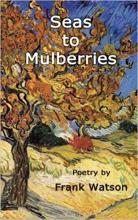Weekly Contest
Classic poem of the day
Full are my pitchers and far to carry,
Lone is the way and long,
Why, O why was I tempted to tarry
Lured by the boatmen's song?
Swiftly the shadows of night are falling,
Hear, O hear, is the white crane calling,
Is it the wild owl's cry?
There are no tender moonbeams to light me,
If in the darkness a serpent should bite me,
Or if an evil spirit should smite me,
Ram re Ram! I shall die.
My brother will murmur, " Why doth she linger? "
My mother will wait and weep,
Saying, " O safe may the great gods bring her,
The Jamuna's waters are deep. " ...
The Jamuna's waters rush by so quickly,
The shadows of evening gather so thickly,
Like black birds in the sky ...
O! if the storm breaks, what will betide me?
Safe from the lightning where shall I hide me?
Unless Thou succour my footsteps and guide me,
Ram re Ram! I shall die.
member poem of the day
These are erotic poems and risque love poems by Michael R. Burch.
Who Can Understand Her?
by Michael R. Burch
Who can understand her? Can the stars,
uncertain in their radiant argosy,
who never saw such love, nor such desire,
as when she bent to tower over me,
her hair a perfumed waterfall descending,
and then her breasts, and then—*ah!*—*Ecstasy!*
***
Retro
by Michael R. Burch
Now, once again,
love’s a redundant pleasure,
as we laugh
at my childish fumblings
through the acres of your dress,
past your wily-wired brassiere,
through your panties’ pink billows
of thrill-piqued frills ...
Till I lay once again—panting redfaced
at your gayest lack of resistance,
and, later, at your milktongued
mewlings in the dark ...
When you were virginal,
sweet as eucalyptus,
we did not understand
the miracle of repentance,




